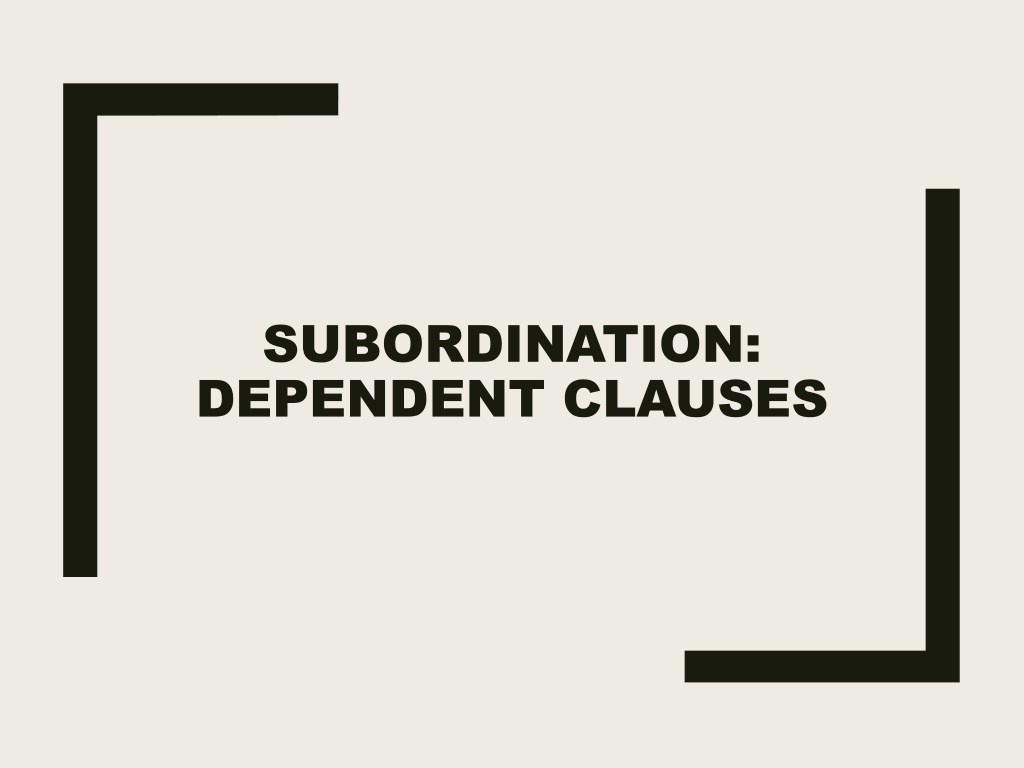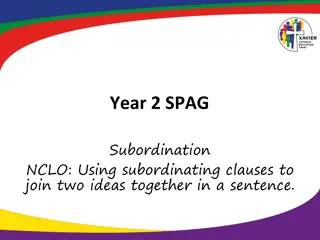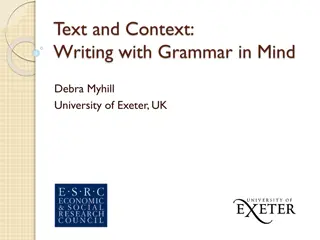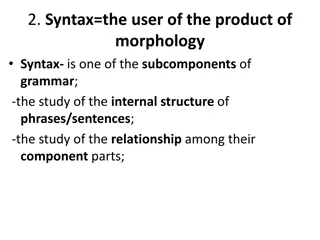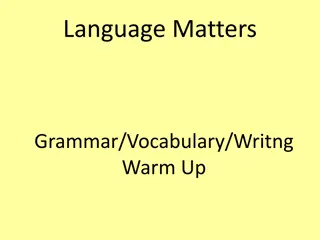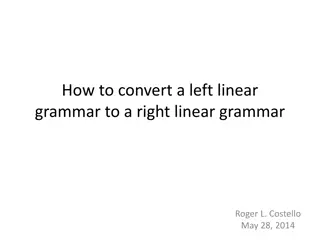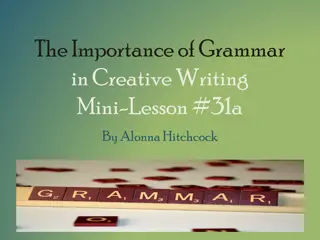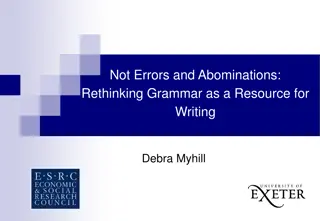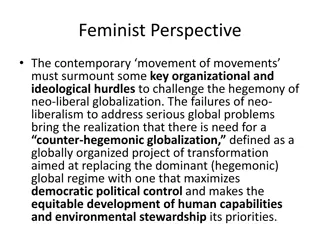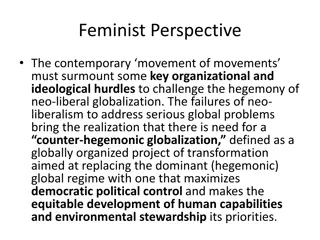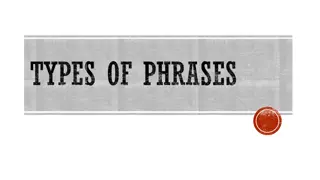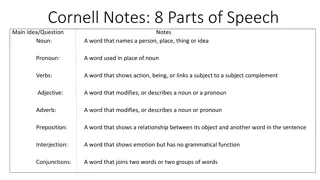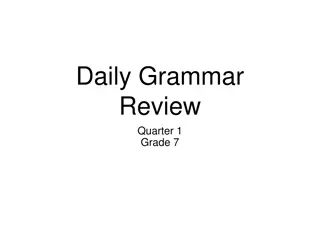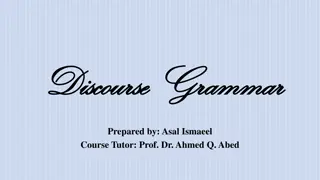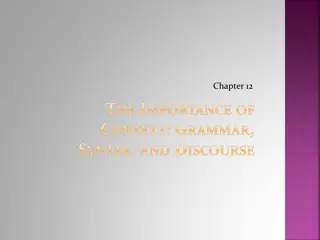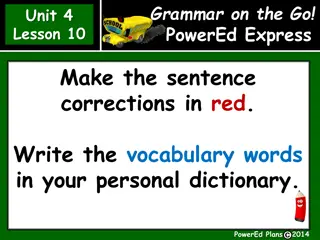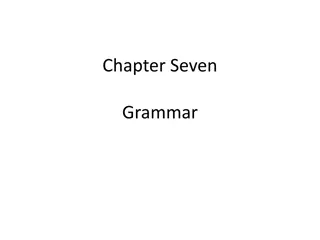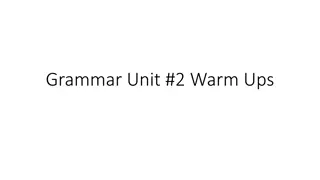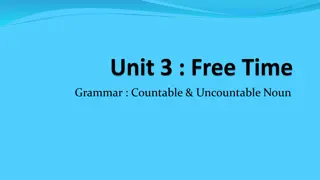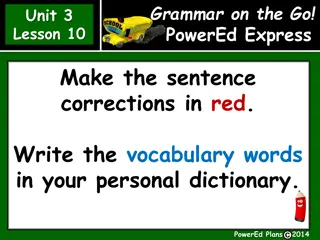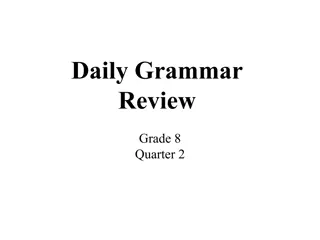Understanding Subordination in Grammar
Subordination in grammar involves dependent clauses that are not independent. These subordinate clauses play three main roles in a sentence: adverbial, adjectival, and nominal. Adverbial clauses provide information on time, manner, place, condition, reason, and purpose. Adjectival clauses act as modifiers of a noun, providing additional descriptive information. Examples illustrate how these clauses function in sentences.
Download Presentation

Please find below an Image/Link to download the presentation.
The content on the website is provided AS IS for your information and personal use only. It may not be sold, licensed, or shared on other websites without obtaining consent from the author. Download presentation by click this link. If you encounter any issues during the download, it is possible that the publisher has removed the file from their server.
E N D
Presentation Transcript
SUBORDINATION: DEPENDENT CLAUSES
If a clause in a sentence is not independent, it is called a subordinate clause (dependent clause). Mainly 3 roles of dependent clauses in a sentence: 1. Adverbial 2. Adjectival 3. Nominal
1. Adverbial Because a weasel is wild, it should be approached with great caution. Yesterday the teacher called the students lazy when they complained about their assignments. Some of the conjunctions used for adverbial clauses: after before until since as so that because if unless although even though where while in order that whether when
Adverbial Examples When will the flowers bloom?: when spring arrives
How did he answer the question?: as if he knew the subject quite well
Why didn't the poor woman have money?: because she had lost her job
2. Adjectival Modifier of a noun (relative clause-who, whom, which, that, whose). The man who lives upstairs bothers the neighbors. THEM (O) HE (S) bothers (V) headword adjectival The man who lives upstairs bothers the neighbors. THEM (O) HE (S) bothers (V) Don t forget! An adjectival clause follows the headword of the noun phrase in the sentence.
The neighbors know the man who lives upstairs They know (S) (V) him (O) headword adjectival The neighbors know the man who lives upstairs They know (S) (V) him (O)
Other Adjectival Examples Which book did Joe read?: the one that I gave him
What kind of politician has the support of the people?: the one who is trustworthy
More examples for adjectival clauses An object that weighs five pounds on earth would weigh two pounds on the planet Mercury. All the men who/whom citizens of the United States have elected as president have been native-born. Mark Twain, whose real name was Samuel Clemens, grew up in Hannibal, Missouri.
Attention! We USE COMMAS when identification of the noun is not necessary. E.g. John F. Kennedy, who was assassinated in 1963, was the first Catholic president. (a familiar info) The highest mountain in the world, Mount Everest, is located in Asia. (a fact)
If the clause answers the question Which One?, then we DO NOT USE COMMAS. E.g The man who came by yesterday is my professor. Which man? Without the relative clause, we don t know which man.
3. Nominal Noun clauses Annie Dillard says that a weasel is wild. something Like a noun, a nominal clause names a person, place, thing, or idea. A nominal clause may function in a sentence as any of the following: subject Subject complement Object of preposition Direct object Indirect object
Nominal clauses may begin with that or interrogatives: who whom what which whoever whomever whatever when where how why
